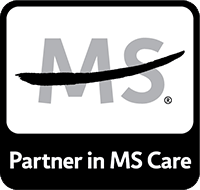Multiple sclerosis (MS) is an autoimmune disorder, wherein the immune system eats away at the material that insulates the nerves. Just as damaged insulation surrounding a wire can cause electrical problems, damage to the central nervous system caused by MS can lead to vision problems, chronic fatigue, depression, neuropathic pain, and tremors.
MS is a serious condition that can cause permanent nerve damage and cannot be cured. However, the progression of the disease can be slowed with proper medical care and symptom management.
MS symptoms vary greatly depending on where the worst nerve damage has taken place and how the course of the disease has developed. Because symptoms of MS often look similar to those of other, less severe neuropathies, your doctor will first rule out other possibilities before providing an MS diagnosis. Potential symptoms include:
- Issues with movement (weak or shaky limbs, tremors, etc.)
- Stinging or shock-like neuropathic pain
- Vision problems (e.g., blurred vision or double vision)
- Fatigue
- Depression
- Loss of bladder function
People with MS may experience intense symptoms for days or weeks with longer periods of remission in between. In the early stages of the disease, it is possible but less typical to experience MS symptoms consistently without remission periods.
The cause of MS is currently unknown, although we do know that MS symptoms are created by damage to the nervous system. It is thought a combination of genetic and lifestyle factors is responsible for triggering the disease in most cases.
There are an estimated one million people living with MS in the United States today. Anyone can be afflicted with MS, but it does occur in some individuals more than others.
- Age. Typically, the first onset of MS symptoms occurs in adults between 20 and 40 years old.
- Family history. Individuals with parents or siblings who have MS are more likely to experience MS themselves.
Additional risk factors include smoking, a history of other autoimmune diseases, certain viral infections, and very low exposure to sunlight.
MS is diagnosed based on symptoms reported to your doctor along with in-office physical and neurological examinations, and a detailed patient history, which your doctor will take by asking you questions about your daily habits and prior medical conditions. Your doctor may order several kinds of tests to rule out other disorders if your pattern of symptoms is ambiguous. Once MS is suspected, the diagnosis may be confirmed with an MRI scan or other imaging. For MS, an MRI would be used to search the brain for scarring from the breakdown of myelin.
How is MS treated?
There is currently no cure for MS; treatment includes symptom management and aiding recovery from attacks. Additionally, medications may be prescribed to slow the progression of the disease.
- Symptom management. For pain and symptom management, your doctor may prescribe muscle relaxants, antidepressants, medications to help with fatigue, or medications targeting your specific symptoms.
- Episode recovery. Medications for MS attack recovery are administered either orally or via injection and work by reducing nerve inflammation.
- Slowing MS progression. Similarly, medications to slow disease progression can be either oral medications or injections. The type of administration depends on the medication your doctor feels is best for your case of MS.
Additionally, complementary treatments such as physical therapy are often recommended.
Why Choose NGPG?

Treatment for MS is constantly improving, so it’s important to choose a neurology specialist who is not only aware of the latest updates but will also help you select the course of treatment right for your unique case of MS.
NGPG Neuroscience employs a variety of board-certified specialists who provide high-quality care through our two outpatient Neurology office locations. For imaging and surgical care, we partner with the Northeast Georgia Medical Center’s expert neurosciences team and state-of-the-art facilities, ensuring our patients’ access to all the services of a leading hospital alongside our excellent outpatient care.
Request an Appointment
To request an appointment please call our office phone at (770) 219-6520.
